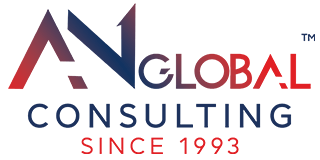
Yes, it is possible to sell a business that is in debt, but it can be challenging. The value of a business is typically based on its profitability, growth potential, assets, and market share. If a business is in debt, it may be less attractive to potential buyers because they may have to assume the debt or pay it off as part of the acquisition.
However, there are some strategies that can help you sell a business that is in debt. One option is to focus on the business’s assets and potential for growth. If the business has valuable assets or a strong customer base, it may still be attractive to buyers despite its debt.
Let us understand it better with an example.
A buyer might be willing to purchase the business for $100,000, which includes the $50,000 in debt. This would allow you to pay off the debt and still receive $50,000 from the sale of the business.
Alternatively, you could negotiate with the buyer to assume the debt in exchange for a lower sale price.
Problems that you might facing while selling a business that is in debt
- Valuation challenges
Valuing a business that is in debt can be challenging. The debt will need to be taken into account when determining the value of the business, which can make the valuation process more complicated.
- Negotiating with creditors
If the business has outstanding debt, you may need to negotiate with creditors to settle the debt or obtain their approval for the sale. This can be time-consuming and may require legal assistance.
- Lack of cash flow:
If the business is struggling with debt, it may have a limited cash flow, which can make it more difficult to find a buyer. Potential buyers may be hesitant to purchase a business that is not generating significant revenue.
- Tax Implications:
Depending on the type of debt and the sale structure, there may be tax implications associated with the sale. It is important to work with a tax professional to understand the potential tax consequences of the sale.
How can I sell the business that is in debt?
Selling a business that is in debt can be a daunting task, but it’s not impossible. The first step is to get your finances in order. This means reviewing your financial statements and creating a plan for reducing the outstanding debt. By doing this, you’ll make your business more attractive to potential buyers and help to improve its overall financial health.
When pricing your business, take into account the outstanding debt and other financial obligations. Price the business appropriately to attract potential buyers who are willing to take on the debt.
Let’s say you own a small manufacturing business that is worth $500,000 in assets, but also has $250,000 in outstanding debt and $50,000 in other financial obligations.
To price your business, you would take the value of your assets ($500,000) and subtract the total amount of your outstanding debt and other financial obligations ($250,000 + $50,000 = $300,000).
This means that the net value of your business is $200,000 ($500,000 – $300,000).
It’s important to remember that pricing your business is not an exact science, and there may be other factors to consider such as market conditions, industry trends, and competition.
Working with a business broker or financial advisor can help you to determine a fair and reasonable price for your business that takes into account outstanding debt and other financial obligations.


